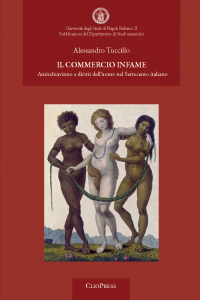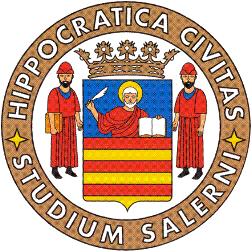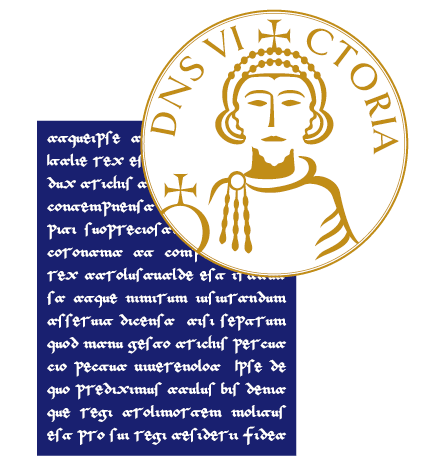The Infamous Commerce: Antislavery and Rights of Men in the 18th Century Italy
Keywords:
Schiavismo, Commercio, diritti dell'uomo, Settecento, Italia, filippo Mazzei, Matteo GaldiSynopsis

Publisher: ClioPress. Editoria digitale per la didattica e la ricerca storica
Pages: 432
Language: Italian
NBN: http://nbn.depositolegale.it/urn:nbn:it:unina-22054
Abstract: The legitimacy of slavery, deeply rooted in classical and Christian culture, was called into question starting from the 18th century. It was a slow process, that had to relate to the peculiar forms the slavery institution got with the European colonisation of America in the Modern Age, that is the workforce imported from sub-Saharan Africa. This process was influenced by economic and political aspects and got a turning point on the intellectual history point of view when the problem of the universal acknowledgment of natural rights of men arose.
This history did not concern the colonial powers solely, and this volume explores an unknown field about it, that is the Italian Enlightenment culture’s contribution to the transnational antislavery thought. In their writings, the Illuministi – and Southern reformers most of all – bumped into the colonial slavery matter, focusing on economic science, history, ancient and contemporary political treaties and on the definition of reforms inspired by the principles of natural rights. The black slave got the anti-model of the human emancipation project of political Enlightenment and, at the end of the century, of the revolutionary «regeneration». Human trafficking and the violation of natural rights were, for Italian antislaverists, the «infamous commerce».
Table of contents
Introduction
Chapter I
Antislavery without colonies
- A «Regolamento del Tutto Inaspettato suilla Tratta de’ Mori»
- Transnational Antislavery
- Rights of men and Colonial Slavery
- Antislavery «Rimostranze» in the «Felice Italia»
- Enlightened Humanism and Christian Charity
- The Slave Traders’ Reports, Christian Models of «Umanità»
Chapter II
Reflections on the Esprit des Lois, Book XV
- Enlightenment, Colonialism, Slavery
- Reflections on the Esprit des Lois. Ermenegildo Personè and Antonio Genovesi
- A Critique on the Sources of Slavery (Esprit des Lois, XV, 2)
- The Foundation of Antislavery against the politiques
- Theoretical Audacity against Colonial Slavery
Chapter III
Main Features of the Modern Commercial Societies
- The Treatise Della Moneta and the Origins of Neapolitan Enlightenment
- The Modern Commercial Society and the Spirit of Conquest
- Colonial Slavery in Genovesi’s Economic Writings
- The Diocesina. The Chapter Della Servitù Domestica
Chapter IV
The «Codice della Natura» against Slavery
- The Histoire des deux Indes, a New Reference Point in the Antislavery Debate
- Francesco Longano comments on Melon
- A Critique of the State of Nature. Gaetano Filangieri and Francescantonio Grimaldi
- Antislavery in the Science of Legislation
Chapter V
Enlightenment, Revolutions and Empires
- Filippo Mazzei, abolitionist
- Del commercio dei negri
- Revolution abolishes slavery. Matteo Galdi’s proposal for a new colonial model
- Antislavery and colonialism in the Age of the Empire. Galdi, diplomatic agent in The Hague
Final considerations
Sources
Bibliography
Downloads













